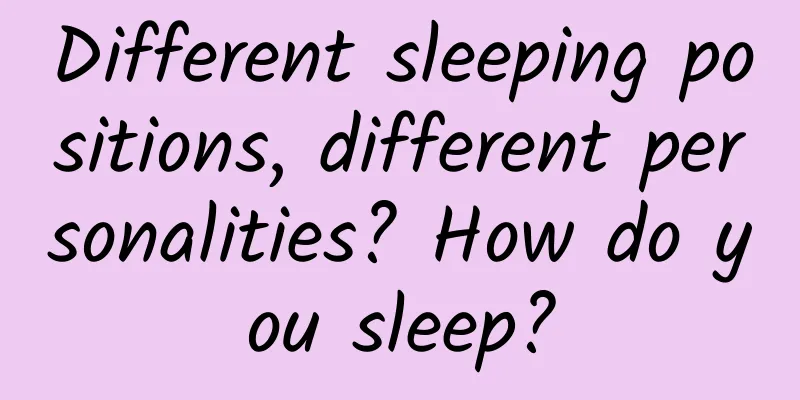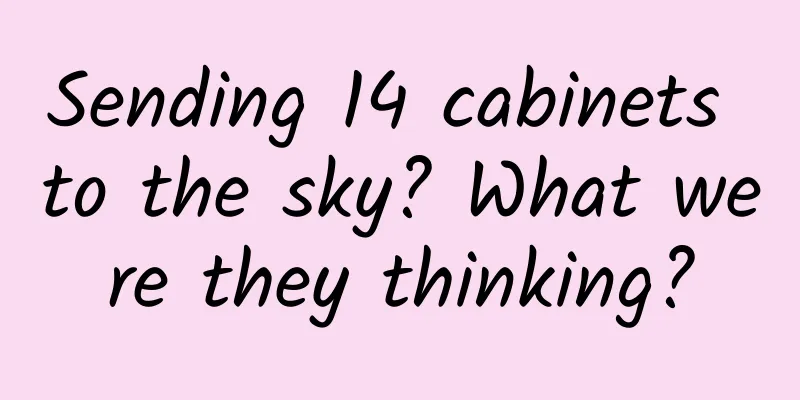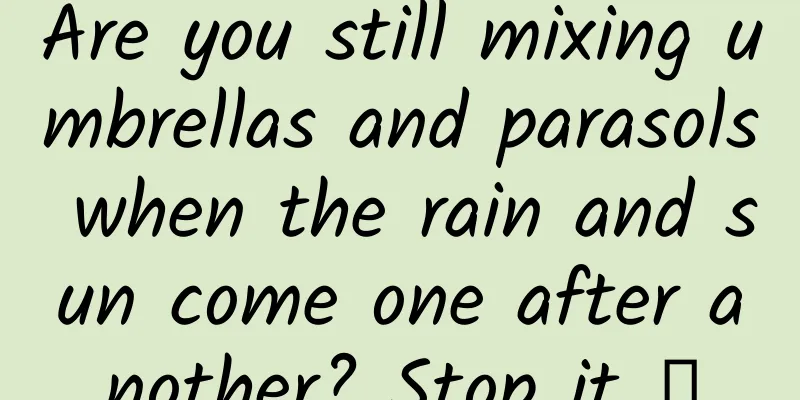Different sleeping positions, different personalities? How do you sleep?

|
It is unreliable to judge a child's personality based on their sleeping position. Based on the existing research, no scientific evidence has been found on the relationship between a child's sleeping position and their personality. Moreover, the personality characteristics of minors are highly malleable as they grow older, and will not remain fixed just because of their sleeping position. There is a saying circulating on the Internet: "You can judge a child's future personality based on his daily sleeping position, because when he sleeps, his subconscious mind is acting completely, so the actions he expresses are most in line with his inner heart!" The saying says that sleeping positions include spread-eagle, curled-up, straight sleeping position and side-lying: children who sleep in the "spread-eagle" position are more optimistic and enthusiastic, have quick minds and strong adaptability; children who sleep in the "curled-up" position look very much like the child when he was in his mother's womb, indicating a lack of inner security; children who sleep in the "straight" position will follow the rules when they grow up, and will be a little stubborn; children who sleep in the "side-lying" position are more easy-going and can easily integrate into a group, but they trust others too easily and are easily deceived. So, in life, can we really judge a child’s personality based on his or her sleeping position? Smiling baby girl lying in bed sleeping on blue sheets | Tuchong Creative 01 Sleeping posture is usually not fixed, so it is unreliable to judge personality If we assume that "sleeping position can determine personality" is true, we can make a simple inference: relevant research data shows that children aged 3-5 years old will change their sleeping positions 4.4 times per hour on average. So, based on the assumption that children aged 3-5 years old sleep about 10 hours a night, does this child switch between 4.4X10=44 multiple personalities in one night? This child is "optimistic and generous" one moment, and "insecure" the next? Obviously, it is unreliable to judge a child's personality based on his sleeping position. (Data source: Koninck et al., Sleep, 1992, Vol. 15, No. 2, pp. 143-149) This kind of personality test is usually found in entertainment magazines as a way to pass the time. It is essentially just a form of entertainment. People read it and laugh. But when someone uses "sleeping position" and "personality" as keywords and searches in all Chinese journals, there are 107 Chinese articles with these two keywords in their titles, and many of them say: "See personality from sleeping position", "Sleeping position reveals personality", "Your sleeping position may reveal your personality"... This is putting the cart before the horse, and it is necessary to give a correct answer to whether "sleeping position" and "personality" are related. 02 "Catching shadows" to identify the source, see what experts say All rumors are just "groundless speculations". What are they catching? Most similar articles do not state the source of the information. Only one article, "Sleeping Position Reveals Personality Secrets", mentioned that "Chris Izikowski, director of the British Sleep Assessment and Advisory Service, surveyed about 1,000 people and analyzed and summarized 6 common sleeping positions, each of which is related to different personalities." (Original source: Invention and Innovation, 2008, Issue 3, Page 51) Cute baby sleeping at home | Tuchong Creative So where is the paper that Chris Izikowski published based on this research? I am very interested in sleep research and would like to read it. Unfortunately, I have not found the original text of this research after searching for a long time. I only found a news report from the BBC on September 16, 2003, titled: Sleep position gives personality clues. Based on a short news report, we cannot know what kind of data the connection between sleeping position and personality traits mentioned in this report is based on, and how these data were collected from what kind of population and using what kind of scale... For a news report, we cannot evaluate how scientific it is. Moreover, the news report is written by the reporter, not the scientist himself, and there is a high possibility that there is a deviation in understanding when the reporter retells the story. (Original source: https://news.bbc.co.uk/2/hi/health/3112170.stm#return ) Let’s take a look at what officially published scientific research papers say about the relationship between sleeping posture and personality. In a research work published in a North American academic journal, 332 college students were asked to fill out four questionnaires. The first was a sleeping position questionnaire, and the other three were personality, creativity, and innovation style scales. They used the sleeping position questionnaire to divide the 332 people into five groups (four different sleeping position groups, and a group that did not know what position they slept in). The results showed that there was almost no difference in personality traits, creativity, and innovation style among the different sleeping position groups. In other words, among ordinary college students, there is no relationship between sleeping position and personality. (Original source: North American Journal of Psychology, Vol. 14, No. 3, 2012, pp. 609-622) Therefore, it is completely unreliable to judge a child's personality from their sleeping position. There is no scientific evidence to support the relationship between a child's sleeping position and their personality. I believe that most people will not believe such a statement without evidence. Moreover, the personality characteristics of minors are highly malleable as they grow older, and will not remain fixed just because of their sleeping position. Author: Huang Jia, Associate Researcher, Institute of Psychology, Chinese Academy of Sciences Review | Fan Chunlei, Associate Researcher, Institute of Psychology, Chinese Academy of Sciences This article is produced by the "Science Rumor Refutation Platform" (ID: Science_Facts). Please indicate the source when reprinting. |
<<: Recommendation! These 9 types of people should drink less coffee. Check if this is you.
>>: Are ants supporters of "feminism"? What is the real ant society like...
Recommend
Summary of information flow advertising optimization techniques!
1: Bid If the account is old and new products are...
China Automobile Dealers Association: The automobile dealer inventory coefficient was 1.91 in April 2022
On May 10, 2022, the China Automobile Dealers Ass...
2020 Mid-level KOL Marketing Development Report
For brand owners, how to obtain effective traffic...
ASO Optimization丨Traffic Thinking Never Dies (Exploring the Road to App Promotion)
This article is mainly written for CEOs or compan...
World Stroke Prevention Day丨Practical! Common knowledge of stroke first aid can save lives at critical moments!
Research has found that 9.77% of all strokes occu...
It's not just you who miss Kobe, these brands do too!
On April 14, 2016, Kobe played the last game of h...
App Store-Sad online route, analyzing the reasons and solutions for AppStore review failure
After submitting an app for review, developers wi...
Transform a 6 cm cockroach into a cyborg, what can it do? Exploration and rescue
Cyborg, this term often appears in science fictio...
How to analyze if a website is penalized by Baidu?
How to analyze if a website is penalized by Baidu...
OnePlus Hydrogen OS Experience: On the Road from UI to UX
[[139903]] Hydrogen OS is a customized Android sy...
These 7 points will help your landing page conversion rate soar!
A landing page , also known as a "landing pa...
Are trees over 100 years old considered ancient trees? There are many ancient trees in my country that are over 1000 years old.
Editor's Note: Ancient and famous trees are k...
Six warnings issued simultaneously! The cold wave continues to intensify, and the Spring Festival travel needs attention →
The Central Meteorological Observatory continued ...
How much potential does NetQin's technology line have under the Blueberry strategy?
Recently, NetQin launched a new Blueberry strateg...
In the US presidential election, how do social media platforms show their power?
In the end, Trump won the US presidential electio...









